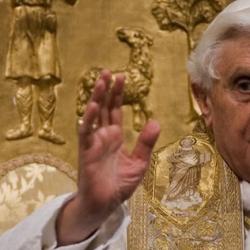Karol Berger (Bach’s Cycle, Mozart’s Arrow) sets out to reassess what we mean by “modernity” in music. For Berger, that involves discovering a caesura somewhere between Bach and Mozart. They are not, he argues, to be considered part of a continuous tradition of classical music; rather, they stand on opposite sides of a rift.
Nineteenth-century observers noted this rift. It was explored in “E. T. A. Hoffmann’s landmark essays ‘Beethoven’s Instrumental Music’ and ‘Old and New Church Music,” in which Hoffmann marks the beginning of new music with Mozart and Haydn. They are
‘the creators of modern instrumental music’ . . . separated from the music of their predecessors by a wide gulf. That earlier, premodern music—like painting or poetry, with which more often than not it was combined—was a mimetic art. It imitated something specific and definite, the emotion of the subject who delivered the text. What defines new music is its separation from language and hence from the mimesis of anything definite, anything in particular. New music’s ‘only subject-matter,’ Hoffmann famously declared, ‘is infinity.’ All of earlier music’s ‘precise feelings’ are abandoned in favor of ‘an inexpressible longing’. (6)
Why do we not see what Hoffmann sees? Berger thinks it partly
because we are aware of the later developments that Hoffmann could not know; our understanding of these later developments colors our interpretation of what happened in the eighteenth century. . . . Today we are more inclined to see the Schoenbergian and Stravinskian expressionisms as contingent stylistic developments rather than inevitable revolutions, and hence more likely to consider them as episodes within a longer story.
But the difference in perspective is actually deeper:
we also tend to concentrate exclusively on stylistic matters,on compositional means.The essentials of the mid-eighteenth-century innovations lie, for us, in the demotion of thorough-bass from its central role in composition to the margins of performance practice; the full emancipation of instrumental music; and the development of formal thinking based on the interplay between tonal planning and thematic argumentation. Hoffmann was as aware of these technical innovations as we are, but he did not put them at the center of the story he was telling. What was decisive for him was not the renovation of compositional means but the new aims that these means were expected to serve. His emphasis was on music’s subject matter and content, as well as on the new ambition to embody in music infinite totality and longing rather than definite emotions. For him the means used to satisfy this ambition were of secondary importance. (6-7)















